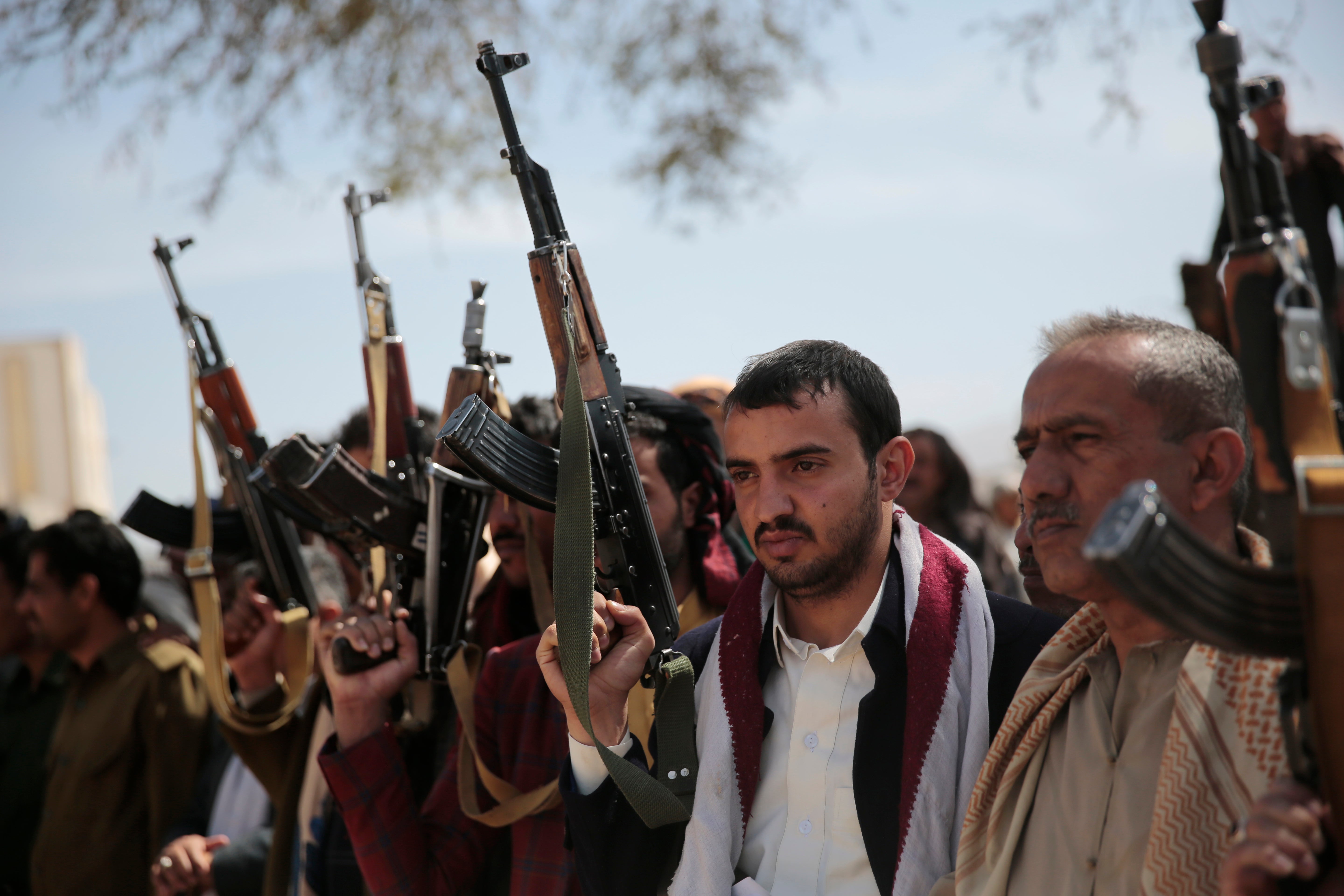US envoy blames Houthis for failure to extend cease-fire
The U.S. envoy to Yemen has blamed Houthi leaders for the recent failure to extend the country’s cease-fire agreement

The U.S. envoy to Yemen on Wednesday blamed rebel Houthi leaders for the recent failure to extend the country's cease-fire agreement, accusing them of making last-minute ‘maximalist demands' that derailed constructive negotiations.
Yemen’s warring sides failed to reach an agreement to extend the nationwide truce Sunday, threatening to reignite the country’s bloody civil war after a six-month cessation in front-line fighting.
During a news conference, U.S. Special Envoy to Yemen Tim Lenderking said the Houthis ‘hijacked' the negotiations by suddenly demanding the salaries of their military and security personnel be paid before that of Yemeni civil servants. Lenderking did not provide any other reason for the failure of the negotiations.
The U.N.-backed truce took effect in April, as the war entered its eighth year. The ruinous conflict began in 2014 when Iranian-backed Houthi forces seized the capital of Sanaa and much of northern Yemen, pushing the government into exile. In response, a Saudi Arabia-led coalition — which included the United Arab Emirates — intervened in 2015 to try to restore the internationally recognized government to power.
Following the passing of the cease-fire deadline, small exchanges of fire were reported in the western governorate of Al Dhalea, while military reinforcements were deployed by both sides in the front-line cities of Marib and Taiz. The reports post-cease-fire could not be immediately confirmed by The Associated Press.
A Houthi official told the AP on Sunday that the U.N.’s unwillingness to provide written guarantees for several of the group's demands proved the major obstruction to negotiations. The demands included the payment of employee salaries and the opening of Sanaa airport and the Houthi-held port of Hodeidah, the official said, who spoke on the condition of anonymity as he was not authorized to brief the media.
April’s truce had originally established the partial opening of the capital's airport and the Red Sea port of Hodeida, as well as the lifting of the Houthi blockade on Taiz, the country’s third largest city. However, disagreements over the opening and control of Taiz's key entry roads has meant the city has remained under a Houthi-imposed siege. Both sides have reported several violations of April's cease-fire agreement.
Analysts say the Houthis’ withdrawal from cease-fire talks is a reflection of the Shia group’s belief that they had greater political leverage in recent cease-fire talks and were more willing to return to war.
However, Farea Muslimi, an associate fellow at British think tank Chatham House specializing in Yemen, told The Associated Press it is still likely Houthi leaders will be forced back to the negotiation table.
“In not backing down from their position, the Houthis face expanded military pressure from U.S. and Saudi allies, along with greater internal economic difficulties,” he said.
The Houthi forces have deployed an increasingly effective arsenal of weapons against Saudi Arabia and other rivals in recent years, including cruise missiles and drones, akin to those manufactured by their major backer Iran. Many of these larger weapon types were displayed in a Houthi military parade in late September. The Saudi-led coalition remains the dominant aerial force and has launched thousands of airstrikes on Houthi positions since 2015, resulting in the deaths of thousands of civilians, rights groups say.
Meanwhile, factional infighting within the anti-Houthi coalition has surfaced in the country's southern provinces. In August, United Arab Emirates-supported militia groups seized vital southern oil and gas fields controlled by other forces fighting with the Saudi-led coalition. Clashes between them and other forces from within the alliance have killed dozens.
On Tuesday, The U.N. joined scores of other non-governmental organizations and international aid groups calling for Yemen’s warring parties to extend the truce and “build on the gains achieved over the last six months.”
The conflict, which in recent years turned into a regional proxy war between Saudi Arabia and Iran, has killed in excess of 150,000 people, including over 14,500 civilians, according to The Armed Conflict Location & Event Data Project. The fighting has thrown Yemen into one of the world’s worst humanitarian crises, pushing it into deeper poverty and near famine.
“Yemen needs not just a military cease-fire, but a truce with hunger," said Muslimi.